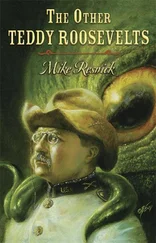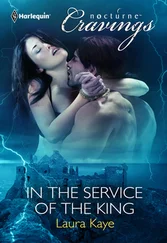“Understood, detective.”
And then, despite how apathetically exhausted I was now, Lopez managed to enrage me one last time.
“I’ll call you,” he promised me.
It was like being poked with a cattle prod. My temper ignited immediately, my energy suddenly renewed. “I can’t believe you! The nerve. The gall! The—”
“I just said the wrong thing, didn’t I?” he guessed.
“It’s exactly what you said when you left my bed a week ago,” I fumed. “And then you never called!”
“He slept with you and then didn’t call?” said the policewoman at the wheel of the squad car. “For a week? ”
“That’s right!” I said.
“God,” said Lopez, “I just hate my whole life right now.”
“Men, ” said the policewoman.
“Oh, come on,” said her partner. “That’s not fair. We’re not all like him. ”
“Take Miss Diamond home now,” Lopez instructed them. “ Right now.”
“Men, ” I agreed, as Lopez slammed the car door shut and walked away.
I fumed in stony silence all the way home, huddled in the backseat of the police car while the two cops in the front seat bickered about . . . I don’t know. Mars, Venus, men, women, Lopez, and me. Something like that.
After I let myself into my shabby but welcoming apartment in Manhattan’s West Thirties, I turned on the light, then went to the window and waved at the bickering cops in the car on the street below, so they’d go away .
My daypack by now felt like it was stuffed with bricks. I slid it off my shoulder and dropped it on the floor. Then I headed toward my bedroom, unzipping and unbuttoning my coat. As soon as I slid it off my shoulders, I shivered. My apartment was freezing. I quickly stripped off my clothes, leaving them lying in a heap on the floor, and donned heavy flannel pajamas, followed by a thick, fuzzy bathrobe. After a quick trip down the hall to the bathroom, I crawled into bed, still wearing my bathrobe, and collapsed facedown on my pillow, so relieved to be there.
I was just drifting off to sleep, trying to banish the random thoughts and images that were floating through my head, when I realized who hadn’t witnessed my embarrassingly public fight at Bella Stella with Lopez about extremely private things. Who hadn’t been in the police van, either, along with me and the other prisoners.
Once again living up to his nickname, Alberto “Lucky Bastard” Battistuzzi had escaped OCCB’s sweep of the Gambello crew.
When the cops barreled into the restaurant, shouting “NYPD!” and everyone else started screaming in response (in particular, I remembered Ronnie shouting, “It’s a raid!”), Lucky had been in the men’s room, trying to clean splattered lasagna off his clothes. Alerted to what was happening, he must have made his getaway.
I assumed the cops had all the exits covered, but it didn’t surprise me that Lucky had managed to slip away undetected. He was wily, experienced, and quick-thinking, and he knew that building well. He was also, well, lucky.
I wondered where he was now. He presumably couldn’t go home, and I doubted he’d gone to Victor Gambello’s house—that would be too obvious to be safe. Besides, for all we knew, the cops were executing a search warrant there, too.
Well, wherever Lucky was tonight, I thought drowsily as I drifted off to sleep, I hoped he was all right.
4

Laoshi
An elder teacher, sage, and role model who has devoted his life to knowledge and wisdom.
Job hunting was not going well. Employers were letting go of holiday staff in the early days of January, not hiring new people. I filled out applications online and in person. I applied at restaurants, retail stores, and temp agencies. I answered employment ads and looked for signs in windows. Some places with “Help Wanted” signs posted told me that those notices were left over from last month and should really be taken down.
“Gee, y’think?” I muttered.
Other places said they just weren’t hiring. “It’s the economy,” they’d tell me with a resigned shrug.
Some places had already filled the positions I inquired about. With so many people looking for work these days, I supposed this wasn’t surprising.
While overpaid politicians with self-righteous smirks and media pundits with patent-leather hair, all of whom had enjoyed paid holidays last week, daily shrieked insults into TV cameras about the lazy, no-good, leeching poor and unemployed of America, I skidded across icy pavements and waded through ankle deep slush each day, looking for work.
Every morning, I left my apartment around nine o’clock, after mixing my breakfast smoothie from a discount container of nonfat yogurt and a bag of fruit I’d found at the back of my now-empty freezer. For thirty minutes each afternoon, I’d “grab lunch” by pretending to be a shopper at the upscale food emporiums where they handed out free samples. At night, I’d get home around nine o’clock and heat up some beans and rice for dinner.
Naturally, during my darkest moment one evening, when I was morosely wondering if I’d ever work again at all, let alone as an actress, my mother called.
She has an uncanny ability to sense when I am at my lowest and immediately phone me. And then she manages to make me feel even worse. It’s her gift.
“You should have known better than to work for a criminal organization,” she said after I explained as briefly and vaguely as possible what had happened to my job.
In other words, it was my fault that I was out of work now.
I tried to change the subject by asking a few questions about things in my parents’ lives back in Madison, Wisconsin, where I’d been raised. My father is a history professor at the university, and my mother is a youth employment counselor. They’re active in the local community and bedrock members of their synagogue.
But my mother was not to be thwarted in her efforts to find out just how bad things were going here.
“So you haven’t had an audition lately?” she asked. “Not any at all? None? ”
“No, Mom, not for a month. Things have been slow.”
She decided to send me money. I declined the offer with thanks—sincere thanks, in fact.
My parents didn’t understand my lifestyle; but, to give them credit, they loved me anyhow, and they didn’t fight me on my choices. My mother was critical and my father was bewildered, but they had recognized me as a mystery child many years ago, as someone who’d been born into their family via some cosmic joke, and they had decided to accept it. (Jews are good at enduring. Not silent about it, but good at it.)
My only sibling, Ruth, was four years older, and she was much more the sort of person they had expected to raise. Married to a Jewish lawyer in Chicago, she was a professional woman with two small children and a good salary. (She was also invariably so stressed out that on the few occasions I saw her, I always had the jitters for days afterward.)
I appreciated that despite their not understanding me—and despite their phone calls not always being a source of undiluted joy for me—my parents accepted that I had chosen this path in life and was committed to it. They tried, in their way, to be supportive and show an interest in my work.
And I had always felt that my obligation in our silent pact, since life is a two-way street, was not to trouble them with the problems that inevitably arose from this lifestyle. I knew they wouldn’t mind sending me money now and then; but I thought it just didn’t seem right to ask or accept. It somehow felt a bit like asking to them help me cover the cost of converting to Christianity and getting baptized. (Well, without the hysterical threats of self-immolation that my mother would immediately start shrieking in such a situation.)
Читать дальше












